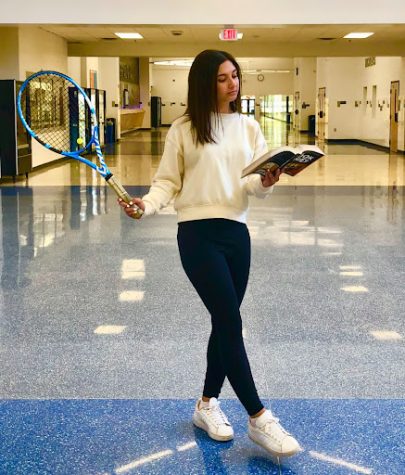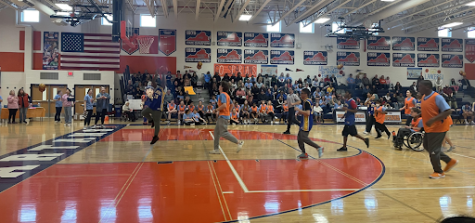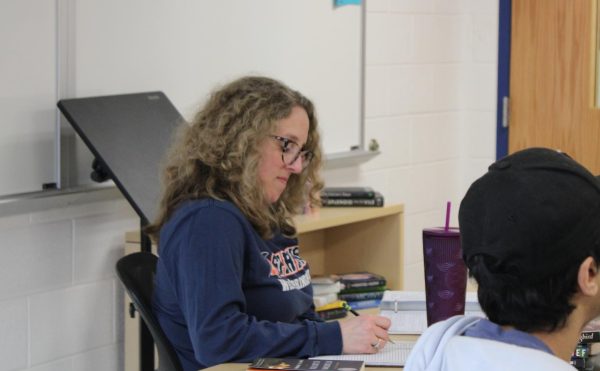Pressure to perform
Photo courtesy of Daniel Choi (@j_choiphotos)
Due to the influx of members who joined since last year, the choreography had to become more structured on the stage since there wasn’t as much space for mistakes. The EEC had roughly 40 members in their performance this year.
The Ethiopian and Eritrean Club (EEC) performed during the annual International Night, preparing intricate dances and practicing almost every day leading up to the performance.
Students felt the pressure to perform in front of their family to not dishonor their culture.
“Yes, there is pressure because you want to make sure every tribe gets represented because there’s over eighty tribes in Ethiopia,” said junior Heldana Mekebeb, one of the officers for the EEC’s participation in International Night.
The competition between clubs from different schools in the region added to the pressure participants felt. Many members in the EEC went to other schools’ International Nights to see their rivals’ performances. Compared to last year, the members of the club are making this International Night more serious and competitive.
Practices for EEC went as long as five hours, a big difference from practices that occurred last year that were usually 30 minutes to an hour. In addition, the EEC practiced since early January on their ten dances. Dancers would go to practices from two to three times a week depending on how many dances the individual was involved in.
“I think there’s pressure from our officers to be on time and to try to do the dances well. I think they apply that amount [of pressure] on us because we were a bit behind on learning how to do the dances and remembering them even though we had a lot of time,” expressed sophomore Christina Tegene.
The theme of the EEC’s performance was the unity of two souls by marriage. The ceremony is very important for Ethiopian and Eritrean religion, Orthodox Christianity, which was the moral of their interpretive dance.
“There is a wedding in our performances as well as culture,” responded Mekebeb when asked about the dance’s inspirations.
The performance displayed their culture by using traditional celebratory methods. One of these traditions is where the future husband has to beg for the bride by forcefully pulling her from her family, explained sophomore Kalki Legesse. This event is very prominent in Ethiopian culture and is a prime aspect in their marriage traditions. Unlike typical American weddings, Ethiopian and Eritrean ceremonies last up to a week, so it is important to represent that in their cultural dances.
International Night resulted in a display of Ethiopian and Eritrean culture with partner dance, the portrayal of female independence, and passion with every step. Members of the culture in the audience reacted with waves of applause and interacted by waving their flags to support the performance.









